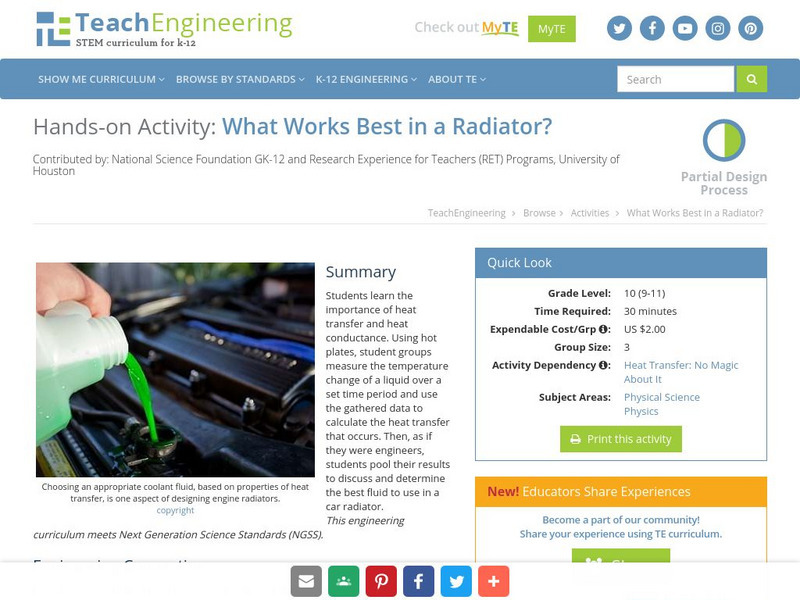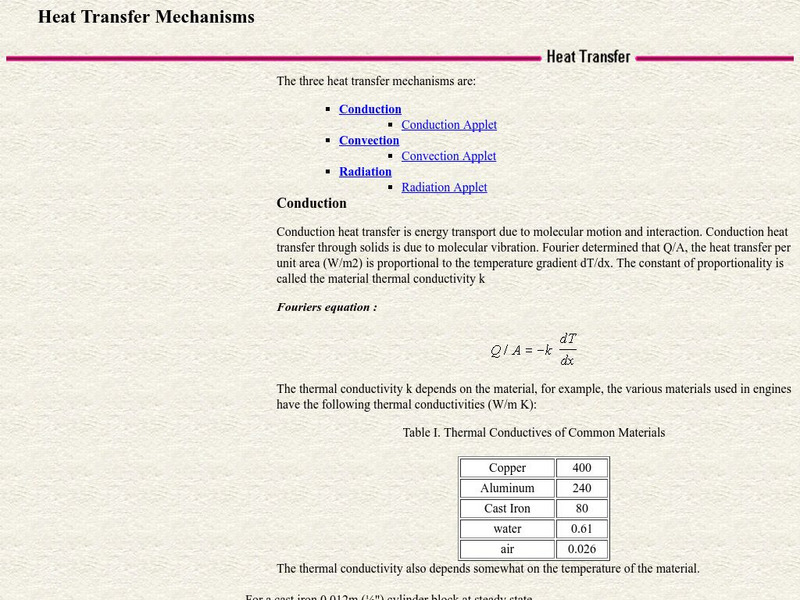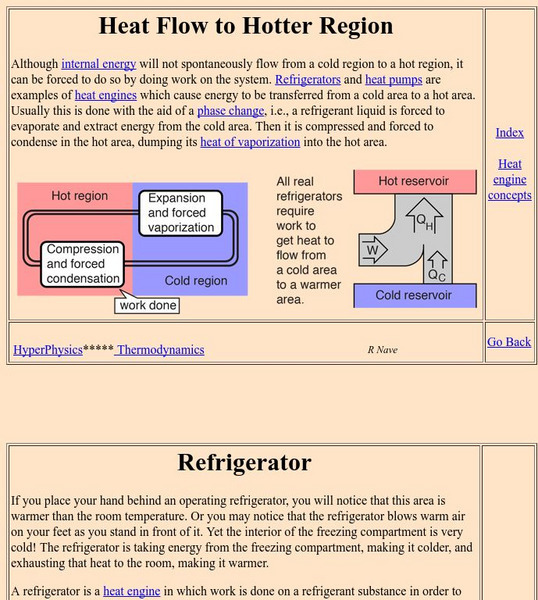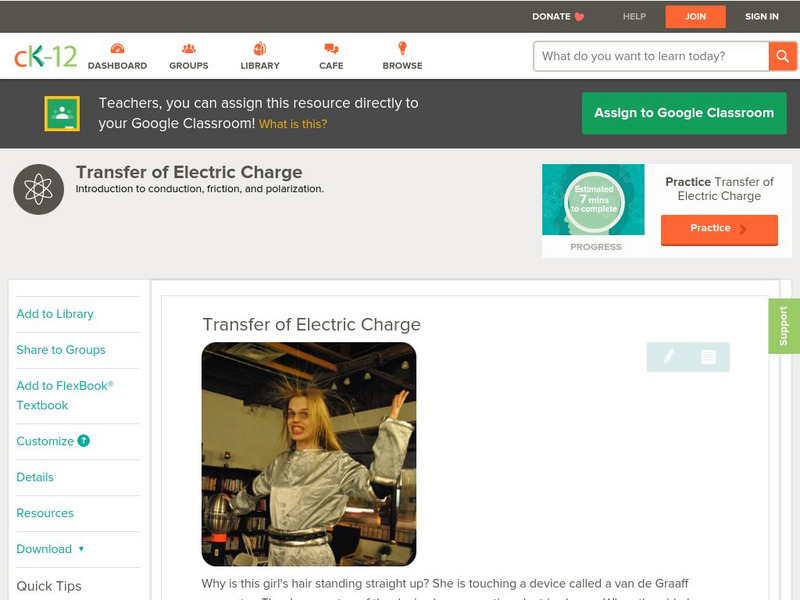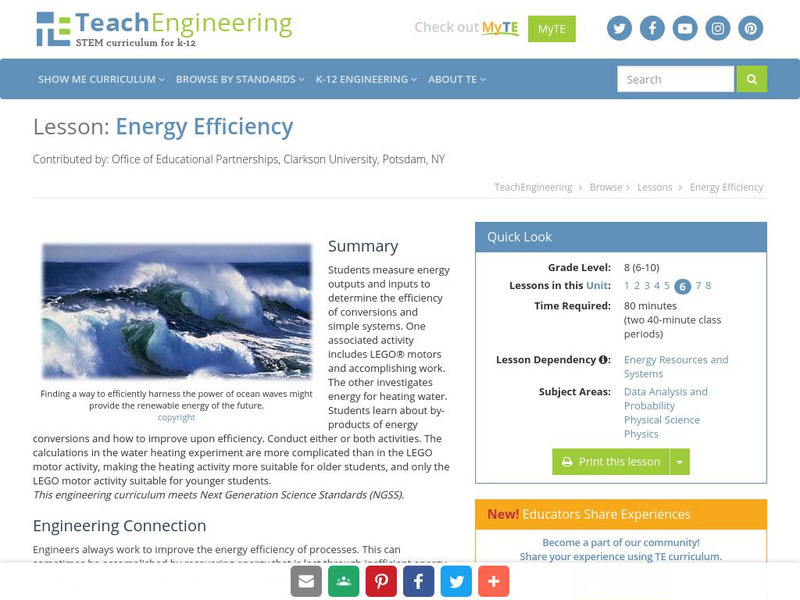TeachEngineering
Teach Engineering: Conduction, Convection, and Radiation
With the help of simple, teacher-led demonstration activities, students learn the basic concepts of heat transfer by means of conduction, convection, and radiation. Students then apply these concepts as they work in teams to solve two...
ArtsNow
Arts Now Learning: Dance With Heating, Cooling, and Insulation [Pdf]
In this lesson, 3rd graders use movement and dance composition to aid their comprehension of heating, cooling, and insulation.
CK-12 Foundation
Ck 12: Physical Science: Heat Conduction
[Free Registration/Login may be required to access all resource tools.] Investigates what conduction is, how it works, and gives examples of conduction.
TeachEngineering
Teach Engineering: Insulation Materials Investigation
Students test the insulation properties of different materials by timing how long it takes ice cubes to melt in the presence of various insulating materials. Students learn about the role that thermal insulation materials can play in...
Science Education Resource Center at Carleton College
Serc: Investigating Testing for Electrical Conductivity Using Materials
In this activity, students will understand that electricity moves through different circuits and discover what types of materials are conductors and insulators.
Maryland Science Center
Maryland Science Center: Build a Conductivity Tester [Pdf]
Instructions on how to build an instrument that can be used to test which materials are conductors and which are insulators, in order to bridge a gap in an electrical circuit.
Physics Classroom
The Physics Classroom: Conductors and Insulators
This online tutorial helps students understand how the transfer of charge between objects occurs more readily if two objects are made of a conducting material. Conductors allow for charge transfer through the free movement of electrons....
University Corporation for Atmospheric Research
Ucar: Atmospheric Processes Conduction
This simple demonstration helps students understand the concept of conduction. Site includes background information, images, and lesson plans outlining the demonstration of conduction.
CK-12 Foundation
Ck 12: Electric Conductors and Insulators
[Free Registration/Login may be required to access all resource tools.] In this lesson, students learn about materials that conduct electricity and those that insulate against it. Includes a simulation for exploring conductivity, and a...
PBS
Pbs Kids: Conduction Countdown
PBS offers an experiment that kids can do at home to learn more about heat conduction and how it works.
TeachEngineering
Teach Engineering: Keep It Hot!
Student teams design insulated beverage bottles in this challenge, and test them to determine which materials work best at insulating hot water to keep it warm for as long as possible.
TeachEngineering
Teach Engineering: What Works Best in a Radiator?
Students learn the importance of heat transfer and heat conductance. Using hot plates, student groups measure the temperature change of a liquid over a set time period and use the gathered data to calculate the heat transfer that occurs....
TeachEngineering
Teach Engineering: Heat Transfer: No Magic About It
Heat transfer is an important concept that is a part of everyday life yet often misunderstood by students. In this lesson, students learn the scientific concepts of temperature, heat, and the transfer of heat through conduction,...
Georgia State University
Georgia State University: Hyper Physics: Thermal Conductivity
Lists thermal conductivity values for a variety of topics. The link "Heat conduction discussion" on this page displays an equation for calculating the rate of thermal conduction using these conductivity values.
Georgia State University
Georgia State University: Hyper Physics: Heat Conduction
Using understandable words and exceptional graphics, this page describes the transfer of energy by means of conduction. Contains several links to related topics.
Colorado State University
Csu: Heat Transfer Mechanisms
An excellent page from the Colorado State University with a heavy mathematical emphasis. Each form of heat transfer--conduction, convection, and radiation--is defined, compared, and contrasted. Mathematical equations governing the rates...
TeachEngineering
Teach Engineering: What Is Heat?
Students learn about the definition of heat as a form of energy and how it exists in everyday life. They also learn about the three types of heat transfer as well as the connection between heat and insulation.
Colorado State University
Colorado State Univ.: Heat Transfer Resistance Modeling
This site from the Colorado State University discusses the tranfer of heat by conduction and convection. Discussion centers around the application of these two heat transfer mechanisms to engines. The variables that effect the resistance...
BBC
Bbc Schools: Ks2 Bitesize: Science: Materials: Keeping Warm
Easy-to-understand overviews, with illustrations, a game, and quiz questions, about thermal conductors and insulators.
Wikimedia
Wikipedia: Electrical Conductivity
This is the encyclopedic entry for electrical conductivity from Wikipedia.com. The site provides a brief introduction to the topic but provides numerous links to information relative to the topic.
Georgia State University
Georgia State University: Hyper Physics: Heat Flow to Hotter Region
Heat flow from a hot region to a cold region is described and explained. Applications of this phenomenon (specifically heat pumps and refrigerators) are discussed. Excellent graphics.
CK-12 Foundation
Ck 12: Physical Science: Transfer of Electric Charge
[Free Registration/Login may be required to access all resource tools.] Transfer of electric charge: transfer of electrons, conservation of charge and three ways electric charge can be transferred.
TeachEngineering
Teach Engineering: Energy
Through nine lessons, students are introduced to a range of energy types--electrical, light, sound and thermal-as well as the renewable energy sources of wind, hydro (water) and solar power. Subjects range from understanding that the...
TeachEngineering
Teach Engineering: Energy Efficiency
Students measure energy outputs and inputs to determine the efficiency of conversions and simple systems. One associated activitiy includes Lego motors and accomplishing work. The other investigates energy for heating water. Students...

![Arts Now Learning: Dance With Heating, Cooling, and Insulation [Pdf] Lesson Plan Arts Now Learning: Dance With Heating, Cooling, and Insulation [Pdf] Lesson Plan](https://d15y2dacu3jp90.cloudfront.net/images/attachment_defaults/resource/large/FPO-knovation.png)







